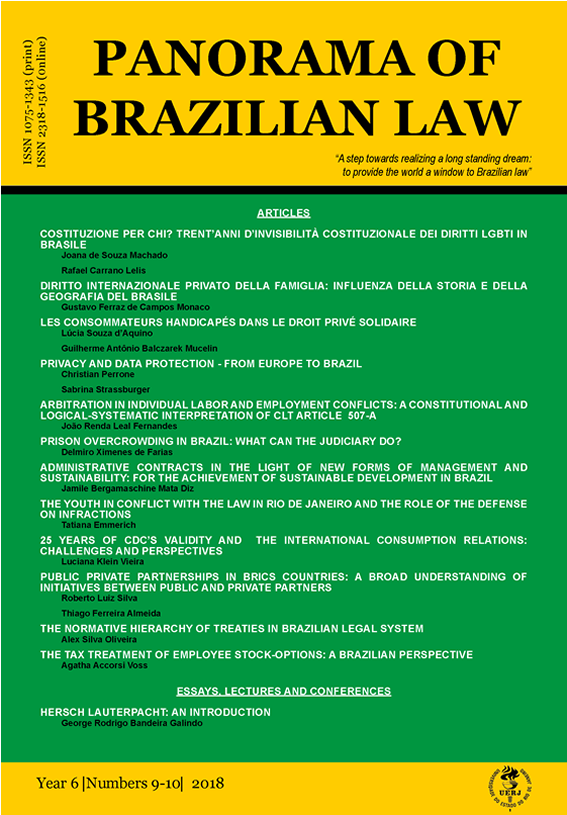The Tax Treatment of Employee Stock-Options: A Brazilian Perspective
Keywords:
stock options, OECD, salary, capital gainsAbstract
The article presents an analysis of issues concerning the taxation of employee stock options plans (ESOPs). It examines a detailed study published by the Organization for Economic Co-operation and Development (OECD) regarding the tax treatment of stock options and incentive pay schemes in the OECD countries and compares its conclusions with the tax treatment of ESOPs in Brazil. The aim of the article is to illustrate the main conclusions of the analysis made by OECD based on the tax neutrality principle and to provide a specific description of the tax treatment of ESOPs in Brazil, showing how the discussions pointed out by OECD are being faced in the country. The conclusion, unfortunately, is that all the intricacies that arise when the companies decide to grant ESOPs listed by OECD also arise in Brazil, which combined with the fact that there are no specific regulations regarding the tax treatment of stock options, specially regarding the qualification of the income received by employees as stock options (if salary or only capital gains), introduces even more an undesired level of uncertainties.References
_ Kahn, Douglas A. "The Two Faces of Tax Neutrality: Do They Interact or Are They Mutually Exclusive?" N. Ky. L. Rev. 18 (1990): 1-19.
_ Mintz, Jack M., Venkatachalam, V. Balaji. “Taxing stock options: Efficiency, Fairness and Revenue Implications” The School of Public Policy. SPP Research Papers Volume 8, Issue 33, October 2015
OECD (2006), The Taxation of Employee Stock Options, OECD Tax Policy Studies, No. 11, OECD Publishing, Paris, https://doi.org/10.1787/9789264012493-en.
OECD (2002), A Cross-Border Income Tax Issues Arising from Employee Stock-Option Plans, A Public Discussion Draft, Paris, http://www.oecd.org/ctp/tax-policy/2069892.pdf
Downloads
Published
How to Cite
Issue
Section
License
Panorama of Brazilian Law employs Open Journal Access policies.
Authors are fully and exclusively responsible for their submissions.
Authors who publish with this journal agree to the following terms:
- Authors retain copyright and grant the journal right of first publication with the work simultaneously licensed under a Creative Commons Attribution-NonCommercial-ShareAlike 4.0 International License that allows others to share the work on a non-comercial basis with an acknowledgement of the work's authorship and initial publication in this journal and indicating if any changes were made. If you remix, transform, or build upon the material, you must distribute your contributions under the same license as the original.
- Authors are able to enter into separate, additional contractual arrangements for the non-exclusive distribution of the journal's published version of the work (e.g., post it to an institutional repository or publish it in a book), with an acknowledgement of its initial publication in this journal.

